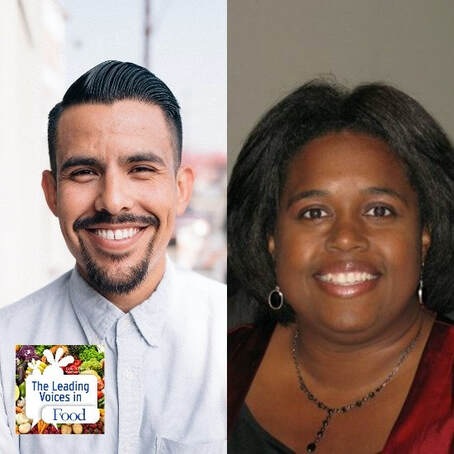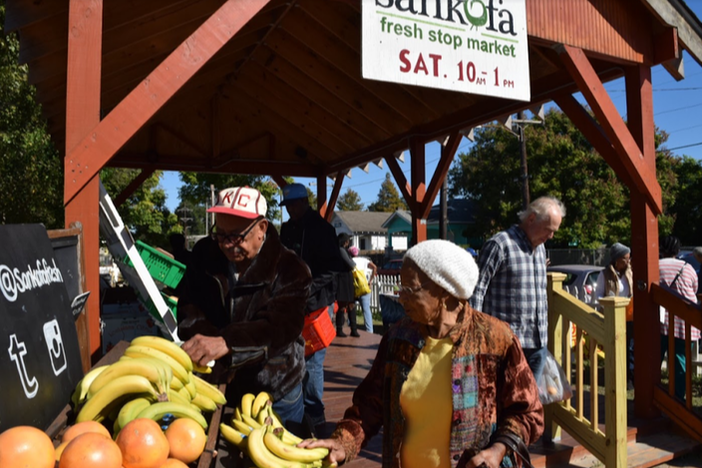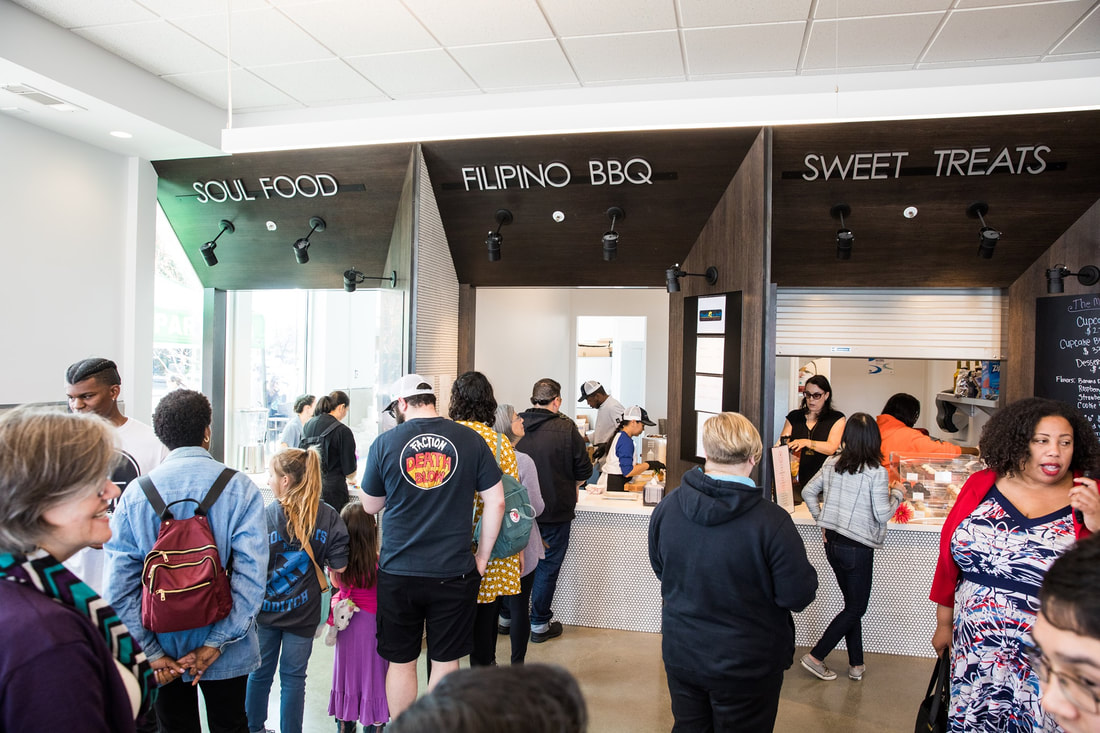Over the last year and a half, DAISA Enterprises has been a supporting partner of the Equitable Food Oriented Development Collaborative (EFOD), a network of organizations and leaders using food to create economic opportunities and build community assets and power. This Fall, in collaboration with the Duke World Food Policy Center’s “Leading Voices in Food” podcast series, members of the EFOD leadership team spoke with host and WFPC Director Kelly Brownell about the EFOD Collaborative’s history and approach, highlighted specific community projects, and framed their visions for community financing through the paired lens of community wealth and health. The conversations span five episodes, which Duke released weekly starting on October 15th.
Photos: Rudy Espinoza, Inclusive Action for the City and Camryn Smith, Communities in Partnership
Each of the conversations touches key elements of the EFOD Collaborative’s work, which is driven by a critical need for communities themselves as the drivers of local economic development. The organizers featured in the podcasts say this in a multitude of ways. In the third of five episodes, Lorena Andrade of La Mujer Obrera in El Paso, Texas, describes how the work of EFOD is as much about defending community as it is creatively bringing new communities into being. Rashida Ferdinand of Sankofa Community Development Corporation in New Orleans joins Lorena in that perspective, naming how EFOD’s collaborative, equity- and community-driven nature enables the network to be a pathway for lasting change.
Photo: Neelam Sharma, Community Services Unlimited
2020 has been both challenging and dynamic for the EFOD Collaborative, which is excited to be underway with its first cohort of a pilot Loan Fund. The EFOD Fund, comprised of both grants and patient loans, will fund EFOD-aligned projects, while also providing comprehensive skilled technical assistance and facilitating a shared professional network in support of the inaugural cohort. EFOD leaders know the EFOD Fund can serve as an alternative model to extractive community financing, and see the Fund as part of a long haul toward disentangling financing from systemic racism. EFOD leaders will manage the loan fund, with support from financing allies.
DAISA is thrilled to support the EFOD team, and hopes you enjoy this thoughtful collaboration between the EFOD Collaborative, Duke’s “Leading Voices in Food” podcast and World Food Policy Center, and DAISA Enterprises. You can find the conversation and transcript for each episode in the 5-part series below:
DAISA is thrilled to support the EFOD team, and hopes you enjoy this thoughtful collaboration between the EFOD Collaborative, Duke’s “Leading Voices in Food” podcast and World Food Policy Center, and DAISA Enterprises. You can find the conversation and transcript for each episode in the 5-part series below:
- Episode 1: Defining Equitable Food Oriented Development - EFOD 101
Neelam Sharma, Community Services Unlimited and Trisha Chakrabarti, DAISA Enterprises - Episode 2: Digging into Equitable Food Oriented Development
Neelam Sharma, Community Services Unlimited and Trisha Chakrabarti, DAISA Enterprises - Episode 3: Developing through Community Identity and Sense of Place
Lorena Andrade, La Mujer Obrera and Rashida Ferdinand, Sankofa CDC - Episode 4: Los Angeles and Durham Reimagined Through EFOD
Camryn Smith, Communities in Partnership and Rudy Espinoza, Inclusive Action for the City - Episode 5: EFOD Impact: Aligning Financial Support with Community Wellbeing
Camryn Smith, Communities in Partnership and Rudy Espinoza, Inclusive Action for the City




 RSS Feed
RSS Feed